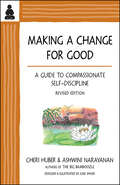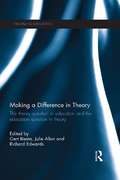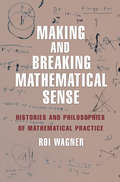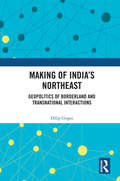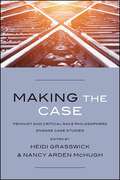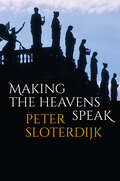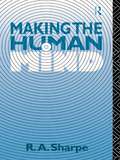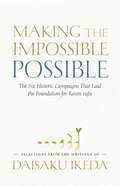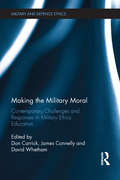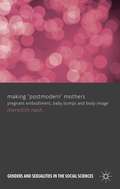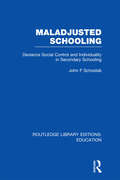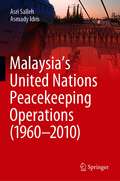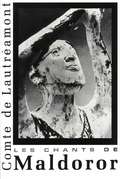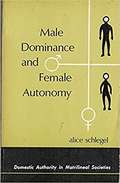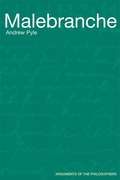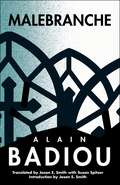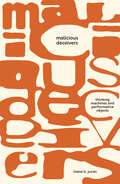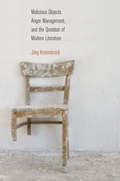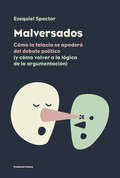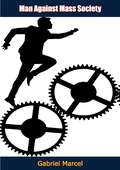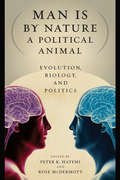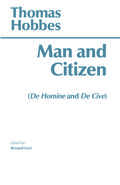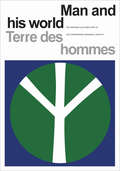- Table View
- List View
Making a Change for Good: A Guide to Compassionate Self-Discipline, Revised Edition
by Cheri Huber Ashwini NarayananMaking a Change for Good will assist anyone to make a change of any kind, whatever the area— diet, fitness, stress, addictions, unskillful behaviors, anxiety, finances, spiritual practice... . Kind, compassionate encouragement for confronting personal issues head on and supportive tools for addressing the struggle are the differences in approach this book offers. Readers realize that lack clarity is the hindrance to addressing an issue, not lack of self-discipline. Rather than being caught in self-hating and self-blaming loops that veer us off course, we can learn to mentor ourselves, and this book teaches us how. The 30-day retreat at the end of the book provides a structure for practicing compassionate self-discipline.
Making a Difference in Theory: The Theory Question In Education And The Education Question In Theory (Theorizing Education Series)
by Julie Allan Richard Edwards Gert BiestaMaking a Difference in Theory brings together original work from an international group of authors on the roles of theory in educational research and practice. The book discusses the different roles theory plays, can play and should play, both from a historical perspective and in light of contemporary discussions and developments. <P><P> Particular attention is paid to the question of whether there are or should be distinctively educational forms of theory and theorising. The double engagement with the theory question in education and the education question in theory and theorising provides original insights in what theory does, might do or should do in educational research and practice. <P><P> With contributions from internationally renowned authors in the field of educational theory, research and practice, the book will be of value to academics, researchers and postgraduate students in education.
Making a Stand for Animals
by Oscar HortaEngaging and thought-provoking, this book examines how humans see and treat other animals and argues that we should extend equal consideration and respect to all beings, human and nonhuman alike. Our world is plighted by ‘isms’ such as racism and sexism, but we may have overlooked a very important one: speciesism. Speciesism is a form of discrimination against those who don’t belong to a certain species. It drives us to see nonhuman animals as objects, rather than individuals with their own interests and with the ability to feel and suffer. This book questions all of the assumptions speciesism is based upon. It raises many challenging questions over humans' very complicated attitudes toward other animals. Thinking about how animals are used as well as the suffering of wild animals, and what the future may be for all beings, this book calls for society to seriously take into account the interests of all animals. For all who care about animals, or simply how to make the world a better place, this book is essential reading.
Making and Breaking Mathematical Sense: Histories and Philosophies of Mathematical Practice
by Roi WagnerIn line with the emerging field of philosophy of mathematical practice, this book pushes the philosophy of mathematics away from questions about the reality and truth of mathematical entities and statements and toward a focus on what mathematicians actually do—and how that evolves and changes over time. How do new mathematical entities come to be? What internal, natural, cognitive, and social constraints shape mathematical cultures? How do mathematical signs form and reform their meanings? How can we model the cognitive processes at play in mathematical evolution? And how does mathematics tie together ideas, reality, and applications?Roi Wagner uniquely combines philosophical, historical, and cognitive studies to paint a fully rounded image of mathematics not as an absolute ideal but as a human endeavor that takes shape in specific social and institutional contexts. The book builds on ancient, medieval, and modern case studies to confront philosophical reconstructions and cutting-edge cognitive theories. It focuses on the contingent semiotic and interpretive dimensions of mathematical practice, rather than on mathematics’ claim to universal or fundamental truths, in order to explore not only what mathematics is, but also what it could be. Along the way, Wagner challenges conventional views that mathematical signs represent fixed, ideal entities; that mathematical cognition is a rigid transfer of inferences between formal domains; and that mathematics’ exceptional consensus is due to the subject’s underlying reality.The result is a revisionist account of mathematical philosophy that will interest mathematicians, philosophers, and historians of science alike.
Making of India's Northeast: Geopolitics of Borderland and Transnational Interactions
by Dilip GogoiThis book examines India’s Northeast borderland – strategically positioned at the confluence of South Asia, East and Southeast Asia – from the perspective of international relations. The volume interrogates the geopolitics of region-making in both colonial and postcolonial times and traces the transformation of Northeast India from a British strategic frontier into a securitised borderland. It situates the region in transnational interactions both in conflict and cooperation with its immediate neighbouring regions of China, Bangladesh, and Myanmar, especially in the context of India’s Look East/Act East policy. The volume paves the way for a new ‘region-state’ framework borne out of the constructivist worldview and offers answers to many conundrums centring border studies. It further delineates approaches to overcoming the present geopolitical and territorial challenges of India’s Northeast with a critical thrust on regional policymaking. The volume will be of interest to students and researchers in the disciplines of social sciences and humanities in India as well as South and Southeast Asia. It will be especially useful to those in politics and international relations, strategic studies, international political economy, foreign policy, development studies and regional development, besides foreign policy-makers and diplomats, development practitioners, economists and policy analysts.
Making the Case: Feminist and Critical Race Philosophers Engage Case Studies
by Nancy Arden McHugh Heidi GrasswickMaking the Case brings together established and emerging philosophers who use case studies to address a variety of contemporary social justice causes. The contributors show both the depth and breadth of work in this area and highlight the distinctive approaches that feminist and critical race theorists, in particular, have pursued. For these theorists, the choice of the kinds of cases analyzed matters, not only pushing philosophy as a field to foreground the challenges facing marginalized groups but also affecting the kind of philosophy that results. This ensures that their theories do not reproduce the conceptual frameworks of dominant groups. By using thickly described cases, as opposed to the thinly described or hypothetical situations that have been the historic mainstay of philosophy, the contributors strive to create philosophy that never strays too far from the complexities of people's lives on the ground. The book provides philosophers with a host of methodologies, theories, and practical examples for use in social justice case work, with topics ranging from census design and gender bias in science to incarceration and the spate of recent police killings of black men and women.
Making the Heavens Speak: Religion as Poetry
by Peter SloterdijkThe idea of a connection between poetry and religion is as old as civilization. Homer consulted the Olympian gods on the fate of the fighters on the plain before Troy, and the poet made the heavenly ones speak. It was through poetry that the gods were brought within reach of human hearing. In the centuries after Homer, the Athenian stage became the setting where gods made their poetic interventions, resolving human impasses and contributing to the emotional synchronization of the public life of the city. Sloterdijk argues that, as with the culture of the Ancient Greeks, all religions inscribe a kind of “theopoetry” at the heart of their cultural life and thought, even as they strenuously obscure these poetic origins through the cultivation and enforcement of orthodox norms. Sloterdijk also shows how, in conditions of religious pluralism, religions poetically reshape themselves to accommodate the demands of the religious marketplace. This highly original study of the poetic devices that inform accounts of the otherworldly offers a new interpretation of religious practice and its theological elaboration through history, as well as a fresh perspective on our contemporary age in which collective life, interwoven with imaginative fabrications, is fraying under critical stress.
Making the Human Mind
by R. A. Sharpe"Making the Human Mind" is an attack on the widespread assumption that the mind has parts and that it is the interaction between these parts which accounts for some of the most characteristic human behaviour, the sorts of irrational behaviour displayed in self-deception and weakness of will. The implications of this attack are considerable: Professor Sharpe contests a realism about the mind, the belief that there is an inventory which an all-seeing deity could compile and which could contain answers to all the questions we could ask about people. With this goes a hermeneutic approach to the understanding of human behaviour: these forms of understanding are markedly different from that suggested by the scientific model and favoured by those who partition the mind. Finally, the author undermines eliminative materialism and the idea that the way we talk about the mind constitutes a "folk psychology", arguing that what is distinctively human about the human mind has been created by self-consciousness and is self-created.
Making the Impossible Possible: The Six Historic Campaigns That Laid the Foundation for Kosen-rufu
by Daisaku IkedaFew believed it could happen. Most dismissed it as fantasy. But when Josei Toda in 1951 revealed his grand vision to grow the Soka Gakkai in Japan from a membership of a mere three thousand to a membership 750,000 households strong, one young disciple vowed to make it happen. Daisaku Ikeda soon took the lead, and over the course of six years and six major campaigns he blazed the trail for the unprecedented growth of a people's movement for peace. He cared for and inspired each person he met along the way, and soon thousands united with him and his mentor, helping person after person overcome their struggles and find true happiness. These are not only inspiring stories from the past but lay out a formula so that we, in our present and future, can turn our impossibilities into possibilities.
Making the Military Moral: Contemporary Challenges and Responses in Military Ethics Education (Military and Defence Ethics)
by Don Carrick, James Connelly and David WhethamThis book offers a critical analysis, both theoretical and practical, of ethics education in the military. In the twenty-first century, it has become increasingly important to ensure that the armed forces of Western and other democracies fight justly and behave ethically. The ‘good soldier’ has to be not only professionally skilled but morally intelligent. At a time of relentless media scrutiny, the publicising of incidents of morally and legally unacceptable behaviour, such as the gross mistreatment of prisoners and the torture of suspected terrorists, can do much to undermine the credibility of those who claim to hold the moral high ground in any particular conflict. Written by an international team of academic theorists and military practitioners, this volume provides inter-disciplinary insights into the present state, and the future, of ethics education in the militaries of Western democracies. The contributors critically address the central question of whether such education is sufficient to prepare members of the armed forces to face the peculiar challenges of conflict environments that are now primarily ‘wars among the people’, in which the opposing combatants may have little or no regard for human life and fail to discriminate between soldiers and civilians when choosing their targets. Drawing lessons from recent examples of unethical conduct, this original book offers insightful and constructive advice, both theoretical and practical, as to how situations can be improved and on the means that could and should be employed towards this end. This book will be of much interest to students of military studies, ethics and international relations.
Making ‘Postmodern’ Mothers
by Meredith NashBased on interviews with pregnant women, this book provides a multi-disciplinary empirical account of pregnant embodiment and how it relates to wider sociological and feminist discourses about gender, bodies, 'fitness', 'fat', celebrity and motherhood.
Maladjusted Schooling (Routledge Library Editions: Education)
by John F SchostakThe problems this book discusses are the same now as they were 25 years ago: unemployment, poor housing, inadequate facilities, poverty, racism, violence. What is the function of a school in such a situation? Although many schools hold reformist ideals, their practice is constrained by organisational demands. School organisation is based upon a coercive theory of social control which is intolerant of expressions of individuality by teachers and pupils. Needs for individuality may be mistaken for deviance, and deviance is at least in part produced by, or exacerbated by, school organisation. The author maintains that schooling is therefore largely maladjusted to the needs of individuals.
Malaysia’s United Nations Peacekeeping Operations (1960–2010)
by Asri Salleh Asmady IdrisSmall and developing states make up the majority of participants in United Nations Peacekeeping Operations (UNPKO), and Malaysia is one of these. The numerous previous studies on Malaysia’s UNPKO are primarily historical narratives which focus on practical, policy-related issues and due process, making no attempt to synchronize the nexus between theory and policy analysis. Nor do they cover the theoretical aspect which can operationalize and address the question of the roles played by Malaysia’s domestic actors (foreign policy executives, legislature, military, media, public opinion) in the respective decision-making processes as well as those of external level, such as international power politics and geopolitical considerations. In other words, they are predominantly a historical narrative of only several Malaysia’s UNPKO.This book fills the critical gap. It deliberates on the respective national and international decision-making processes, especially from the Malaysian point of view, and analyses the theoretical and practical impacts of Malaysia’s UNPKO in understanding international politics. Apart from providing a well-researched account of Malaysia’s UNPKO across the globe for 50 years, i.e. 1960-2010, this book examines the determinants by using qualitative data, particularly key-informant interviews and documentary analysis. Thus, while most studies of Malaysia’s UNPKO single out domestic imperatives as the most vital determinant, this book, on the contrary, comprehensively identifies the prevailing world security order as the most important determinant influencing Malaysia’s UNPKO, followed by the domestic ones.
Maldoror (Les Chants de Maldoror)
by Guy Wernham Conte De LautreamontThis macabre but beautiful work, Les Chants de Maldoror, has achieved a considerable reputation as one of the earliest and most extraordinary examples of Surrealist writing. Maldoror is a long narrative prose poem which celebrates the principle of Evil in an elaborate style and with a passion akin to religions fanaticism. The French poet-critic Georges Hugnet has written of Lautréamont: "He terrifies, stupefies, strikes dumb. He could look squarely at that which others had merely given a passing glance." When first published in 1868-69, Maldoror went almost unnoticed. But in the 1890s the book was rediscovered and hailed as a work of genius by such eminent writers as Huysmans, Léon Block, Maeterlinck, and Rémy de Gourmont. Later still, Lautréamont was to be canonized as one of their principal "ancestors" by the Paris surrealists. This edition, translated by Guy Wernham, includes also a long introduction to a never-written, or now lost, volume of poetry. Thus, except for a few letters, it gives all the surviving literary work of Lautréamont.
Male Dominance And Female Autonomy: Domestic Authority In Matrilineal Societies (Comparative Studies)
by Alice Schlegel Raoul NarollMale Dominance and Female Autonomy: Domestic Authority in Matrilineal Societies
Malebranche (Arguments of the Philosophers)
by Andrew PyleNicolas Malebranche (1638-1715) is one of the most important philosophers of the seventeenth century after Descartes. A pioneer of rationalism, he was one of the first to champion and to further Cartesian ideas.Andrew Pyle places Malebranche's work in the context of Descartes and other philosophers, and also in its relation to ideas about faith and reason. He examines the entirety of Malebranche's writings, including the famous The Search After Truth, which was admired and criticized by both Leibniz and Locke. Pyle presents an integrated account of Malebranche's central theses, occasionalism and 'vision in God', before exploring and assessing Malebranche's contribution to debates on physics and biology, and his views on the soul, self-knowledge, grace and the freedom of the will.This penetrating and wide-ranging study will be of interest to not only philosophers, but also to historians of science and philosophy, theologians, and students of the Enlightenment or seventeenth century thought.
Malebranche: Theological Figure, Being 2 (The Seminars of Alain Badiou)
by Alain BadiouAlain Badiou is perhaps the world’s most significant living philosopher. In his annual seminars on major topics and pivotal figures, Badiou developed vital aspects of his thinking on a range of subjects that he would go on to explore in his influential works. In this seminar, Badiou offers a tour de force encounter with a lesser-known seventeenth-century philosopher and theologian, Nicolas Malebranche, a contemporary and peer of Spinoza and Leibniz.The seminar is at once a record of Badiou’s thought at a key moment in the years before the publication of his most important work, Being and Event, and a lively interrogation of Malebranche’s key text, the Treatise on Nature and Grace. Badiou develops a rigorous yet novel analysis of Malebranche’s theory of grace, retracing his claims regarding the nature of creation and the relation between God and world and between God and Jesus. Through Malebranche, Badiou develops a radical concept of truth and the subject. This book renders a seemingly obscure post-Cartesian philosopher fascinating and alive, restoring him to the philosophical canon. It occupies a pivotal place in Badiou’s reflections on the nature of being that demonstrates the crucial role of theology in his thinking.
Malicious Deceivers: Thinking Machines and Performative Objects (Sensing Media: Aesthetics, Philosophy, and Cultures of Media)
by Ioana B. JucanIn Malicious Deceivers, Ioana B. Jucan traces a genealogy of post-truth intimately tied to globalizing modernity and connects the production of repeatable fakeness with capitalism and Cartesian metaphysics. Through case studies that cross times and geographies, the book unpacks the notion of fakeness through the related logics of dissimulation (deception) and simulation (performativity) as seen with software/AI, television, plastics, and the internet. Specifically, Jucan shows how these (dis)simulation machines and performative objects construct impoverished pictures of the world, ensuring a repeatable sameness through processes of hollowing out embodied histories and lived experience. Through both its methodology and its subjects-objects of study, the book further seeks ways to counter the abstracting mode of thinking and the processes of voiding performed by the twinning of Cartesian metaphysics and global capitalism. Enacting a model of creative scholarship rooted in the tradition of writing as performance, Jucan, a multimedia performance-maker and theater director, uses the embodied "I" as a framing and situating device for the book and its sites of investigation. In this way, she aims to counter the Cartesian voiding of the thinking "I" and to enact a different kind of relationship between self and world from the one posited by Descartes and replayed in much Western philosophical and — more broadly — academic writing: a relationship of separation that situates the "I" on a pedestal of abstraction that voids it of its embodied histories and fails to account for its positionality within a socio-historical context and the operations of power that define it.
Malicious Objects, Anger Management, and the Question of Modern Literature
by Jörg KreienbrockWhy do humans get angry with objects? Why is it that a malfunctioning computer, a broken tool, or a fallen glass causes an outbreak of fury? How is it possible to speak of an inanimate object’s recalcitrance, obstinacy, or even malice? When things assume a will of their own and seem to act out against human desires and wishes rather than disappear into automatic, unconscious functionality, the breakdown is experienced not as something neutral but affectively—as rage or as outbursts of laughter. Such emotions are always psychosocial: public, rhetorically performed, and therefore irreducible to a “private” feeling.By investigating the minutest details of life among dysfunctional household items through the discourses of philosophy and science, as well as in literary works by Laurence Sterne, Jean Paul, Friedrich Theodor Vischer, and Heimito von Doderer, Kreienbrock reconsiders the modern bourgeois poetics that render things the way we know and suffer them.
Malversados: Cómo la falacia se apoderó del debate político (y cómo volver a la lógica de la argumentación)
by Ezequiel SpectorUn libro que pone en evidencia cuáles son las quince trampas argumentativas más habituales en los debates políticos y nos da las herramientas para recuperar la lógica de la argumentación racional, base de la democracia deliberativa. La forma de debate más habitual en los medios -con réplica en las redes sociales- consagra "ganador" a quien da el mejor golpe de efecto. En el mismo gesto en que nos acostumbramos a dirimir en términos de aclamación o condena, dejamos de prestar atención a cualquier tipo de argumento y nos contentamos con subir o bajar el pulgar. Cuando el contenido de una discusión íntima o pública, privada o mediática, se plaga de trampas argumentativas -en términos técnicos, falacias lógicas-, la verdad es la primera víctima. La pérdida de la capacidad de discutir ideas, sopesar argumentos y confrontar propuestas daña seriamente la cultura política de una sociedad y deteriora la democracia. En este libro, Ezequiel Spector pone en evidencia de modo práctico, concreto y lúcido las quince falacias más habituales en los debates políticos y presenta una guía útil para sortearlas y volver a discutir lógica, llana y, sobre todo, limpiamente. Porque sin honestidad intelectual no hay debate posible y sin debate no hay esfera pública, Malversados puede considerarse una oportuna herramienta de construcción de ciudadanía.
Man Against Mass Society
by Gabriel MarcelMAN AGAINST MASS SOCIETY focuses on the “mass man,” who has been dehumanized in a society which reduces the person to the functions he performs, in which he has no distinctive worth and cannot claim to be unique and irreplaceable, and whose tragic result is that he may accept this abstract view of himself as final.
Man Is by Nature a Political Animal: Evolution, Biology, and Politics
by Rose Mcdermott Peter K. HatemiIn Man Is by Nature a Political Animal, Peter K. Hatemi and Rose McDermott bring together a diverse group of contributors to examine the ways in which evolutionary theory and biological research are increasingly informing analyses of political behavior. Focusing on the theoretical, methodological, and empirical frameworks of a variety of biological approaches to political attitudes and preferences, the authors consider a wide range of topics, including the comparative basis of political behavior, the utility of formal modeling informed by evolutionary theory, the genetic bases of attitudes and behaviors, psychophysiological methods and research, and the wealth of insight generated by recent research on the human brain. Through this approach, the book reveals the biological bases of many previously unexplained variances within the extant models of political behavior.<P><P> The diversity of methods discussed and variety of issues examined here will make this book of great interest to students and scholars seeking a comprehensive overview of this emerging approach to the study of politics and behavior.
Man Meets Dog
by Konrad LorenzIn this wonderful book, the famous scientist and best-selling author, Konrad Lorenz, 'the man who talked with animals', enlightens and entertains us with his illustrated account of the unique relationship between humans and their pets. Displaying Lorenz's customary humanity and expert knowledge of animals, Man Meets Dog is also a deeply personal and entertaining account of his relationships with his own four-legged friends. With charming sketches on almost every page, Man Meets Dog offers a delightful insight into animal and human thinking and feeling. An essential companion for all lovers of dogs (and cats!).
Man and Citizen: (De Homine and De Cive)
by Thomas Hobbes Bernard GertA reprint of the 1972 Doubleday edition. Contains the most helpful version of Hobbes's political and moral philosophy available in English. Includes the only English translation of De Homine, chapters X-XV. Features the English translation of De Cive attributed to Hobbes.
Man and His World/Terres des hommes: The Noranda Lectures, Expo 67/Les Conferences Noranda/L'Expo 67
by Helen Hogg The Noranda Lectures/ Expo 67The fruits of a unique cultural exchange are brought together in this unusual book. Twenty-eight of the most eminent men and women of our generation – philosophers, historians, and scientists from nineteen countries – here discuss what they consider the most vital issues of our day. Paul-Henri Spaak, Barbara Ward, Gunnar Mydral, Linus Pauling, and many others participated in the Noranda lecture series at Expo 67 in Montreal, and each is concerned here with a special aspect of Expo's theme: Man and His World. The approaches to the theme are as varied as the backgrounds of the speakers. Some of the essays give a revealing and optimistic description of the national and international efforts to ensure a future for mankind; others, less optimistic, stress the increasing insanity of the world and draw attention to the poverty, starvation, hatred, waste, and war which destroy what creative men have built. One group of papers deals with the idea of progress. André Leroi Gourhan offers a panoramic description of man's cultural evolution and sketches the vast possibilities of future development; Karl Löwith questions the very notion of progress and observes that much "progressive" development has resulted in nothing but destruction; Félix Houphouët-Boigny, president of the Ivory Coast Republic, describes progress in one section of the world – Africa, and the Ivory Coast in particular. Other lectures deal with such diverse topics as the proper role of government, the modern scientist, formal and informal aspects of education, the history of architecture, recent biological contributions of chemistry, the population explosion, new advances in physics, and the world as a separate entity from man. "The world as universe is not made by man," Professor Löwith reminds us. "It is there, even without us, existing for and by itself." Originally sponsored by Noranda Mines Ltd., the lectures attracted wide attention at the time of their delivery and again later when some of them were broadcast on radio and television. Collected in this book, they offer a distillation of some of the most significant thinking of today – clear and cogent presentations of ideas that have won Nobel prizes for some of their creators and international recognition for all. In her Introduction, Helen Hogg writes, "It is a book to be sipped and savoured, to be dipped into again and again. Such an approach will enable the reader best to appreciate the penetrating commentaries of some of the world's greatest figures."
